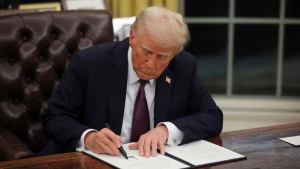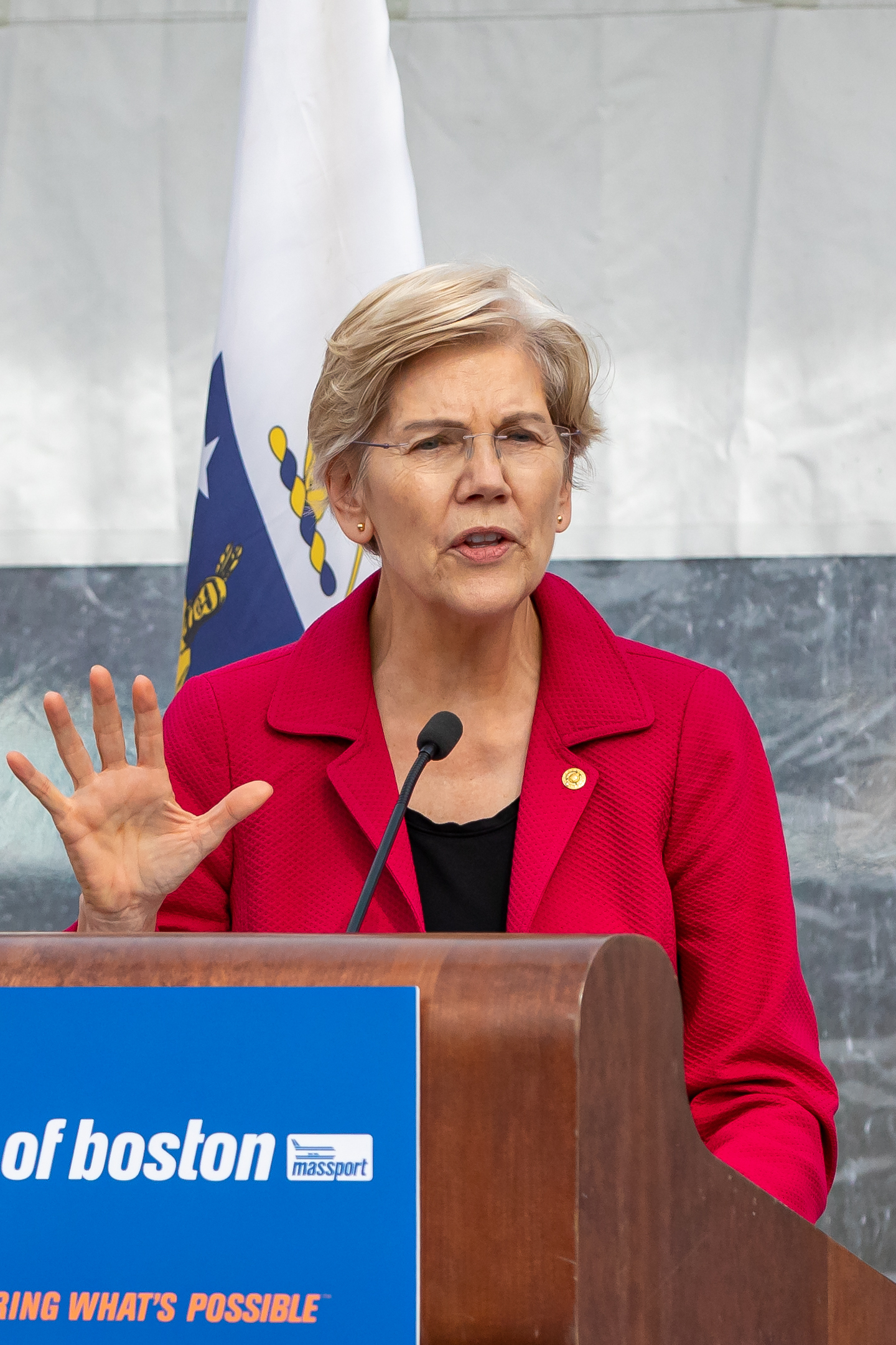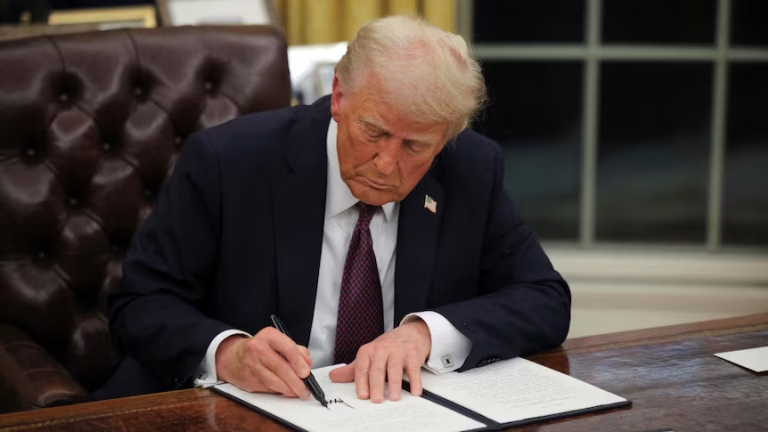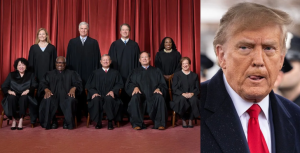NOTE: VIDEOS at the end of the article.
As President Donald J. Trump settles back into the Oval Office as the 47th President of the United States, a political firestorm has ignited over newly surfaced claims suggesting that former President Joe Biden was merely a figurehead during his term—and that a shadow government operated in his name. At the center of the controversy is none other than progressive Senator Elizabeth Warren, who is now being accused of wielding unprecedented power behind the scenes.
The eye-opening allegation came from David Sacks, President Trump’s newly appointed czar for artificial intelligence and cryptocurrency. In an explosive appearance on Fox News, Sacks asserted that Warren was effectively calling the shots on key executive decisions—specifically through her control over the infamous “autopen,” a mechanical device used to replicate the president’s signature on federal documents.
“Elizabeth Warren controlled the autopen,” Sacks said bluntly. “She wasn’t just influencing policy—she was actively bypassing the president and enacting her own agenda, particularly with her obsession over dismantling the crypto industry.”
Sacks, a tech entrepreneur and early Trump ally, claimed Warren’s disdain for cryptocurrency wasn’t just philosophical—it was personal. “She has a pathological hatred of crypto,” he explained. “And under Biden, she used her influence to carry out a coordinated hit job on the industry. Every executive order, every enforcement action against blockchain startups, all of it came from her playbook.”
The allegation gains traction as the Washington Examiner recently published a damning report examining a string of executive orders signed during the Biden presidency. The publication cited multiple instances of identical autopen signatures on documents ranging from policy directives to presidential pardons. The signature pattern was so consistent that it raised red flags among legal scholars and watchdog groups alike.
The Heritage Foundation, a conservative think tank, expressed alarm over the findings. “What we’re seeing is not normal bureaucratic procedure,” said one researcher. “This suggests that the executive branch may have been operating without actual executive oversight.”
President Trump has wasted no time weighing in on the matter. “The use of the autopen under Biden is the biggest scandal in American history since the rigged 2020 election,” he declared during a recent rally. “This wasn’t just incompetence—it was treasonous.”
The controversy has now sparked a formal investigation. House Oversight Committee Chair James Comer announced a probe into what he termed the “autopen conspiracy,” asserting that multiple individuals may have unlawfully assumed presidential authority.
“We believe Joe Biden was not mentally or physically capable of performing his duties,” Comer said in a press conference. “There is mounting evidence that people close to him—including Senator Warren, First Lady Jill Biden, and even his son Hunter—were making executive decisions in his name. That’s not just unethical—it’s unconstitutional.”
The accusation that Hunter Biden, already under legal scrutiny for alleged financial crimes, may have had a hand in national policymaking adds yet another layer to an already murky situation. Critics say the Biden presidency may need to be re-evaluated in light of these revelations, including whether key decisions made during his term were legally valid.
The implications extend beyond partisan politics. Legal analysts are beginning to question whether laws and executive actions signed by the autopen under these circumstances could be challenged retroactively. “If it’s proven that someone other than the President authorized those signatures, then we’re in uncharted constitutional territory,” said Georgetown law professor Michael Drummond. “It could invalidate entire policy initiatives.”
A central theme of Trump’s second presidency has been accountability—and the unraveling of what his supporters call the “Deep State.” Since retaking office in January, Trump has vowed to purge the federal government of entrenched bureaucrats and unelected technocrats who, he claims, sought to sabotage his first term and manipulated Biden’s tenure to their own ends.
Trump’s reappointment of loyalists to key positions signals he intends to follow through. David Sacks, a vocal critic of centralized digital policy, is just one of several officials tasked with identifying and dismantling what Trump describes as “unconstitutional command structures.” Others include figures like Kash Patel and Ric Grenell, who have returned to senior advisory roles.
The focus on Warren adds a surprising twist. Known for her fiery progressive stance on banking, regulation, and big tech, Warren has often been a lightning rod in Washington. But few imagined she might have been pulling the levers of presidential power while Biden was still in office.
Warren, for her part, has not issued a direct response to the accusations. However, a spokesperson from her Senate office dismissed the claims as “right-wing fiction.” The brief statement accused Trump’s administration of trying to “distract from their own incompetence by fabricating a constitutional crisis.”
Despite the denial, conservative media outlets are running full-speed with the story, framing it as evidence that Biden’s presidency was a coordinated illusion engineered by radical Democrats. “This is worse than Watergate,” one Fox News host proclaimed. “If true, this wasn’t just corruption—it was a coup.”
Social media has exploded with hashtags like #AutopenGate and #WhoSignedThat, while independent journalists and influencers dig through Biden-era documents looking for further proof of unauthorized signatures and executive actions.
At the grassroots level, Trump’s base sees this as validation of long-standing suspicions. At recent rallies, chants of “Lock her up!”—once reserved for Hillary Clinton—have now been redirected at Elizabeth Warren.
Some legal scholars, however, urge caution. “Let’s wait for the results of the investigation,” said Dr. Naomi Fields, a constitutional expert at NYU. “The autopen is a legal instrument authorized by Congress. The real question is who had the authority to use it—and whether that authority was abused.”
Meanwhile, Capitol Hill remains on edge. The House Oversight Committee has already subpoenaed internal communications from the Biden White House, including emails and memos related to executive order preparation and authorization. Preliminary findings are expected to be released within weeks.
If the investigation confirms that Biden was incapacitated and decisions were made by unelected individuals, it could trigger a broader constitutional crisis. Some are already calling for a special counsel to be appointed to further examine potential crimes committed under the guise of executive power.
In the words of David Sacks: “This wasn’t just politics. It was deception at the highest level of government. And the American people deserve to know who was really in charge.”
As the story continues to unfold, one thing is clear: the autopen scandal has cracked open a Pandora’s box that could reshape how Americans view the legitimacy of Biden’s presidency—and who truly governs from behind the curtain in Washington.
PLAY:
https://rumble.com/v6u0xft-biden-cover-up-congress-wants-answers-about-the-autopen-and-his-mental-stat.html

James Jenkins is a celebrated Pulitzer Prize-winning author whose work has reshaped the way readers think about social justice and human rights in America. Raised in Atlanta, Georgia, James grew up in a community that instilled in him both resilience and a strong sense of responsibility toward others. After studying political science and creative writing at Howard University, he worked as a journalist covering civil rights issues before dedicating himself fully to fiction. His novels are known for their sharp, empathetic portraits of marginalized communities and for weaving personal stories with broader political realities. Jenkins’s breakout novel, Shadows of Freedom, won national acclaim for its unflinching look at systemic inequality, while his more recent works explore themes of identity, resilience, and the fight for dignity in the face of oppression. Beyond his novels, James is an active public speaker, lecturing at universities and participating in nonprofit initiatives that support literacy and community empowerment. He believes that storytelling is a way to preserve history and inspire change. When not writing, James enjoys jazz music, mentoring young writers, and traveling with his family to explore cultures and stories around the world.









